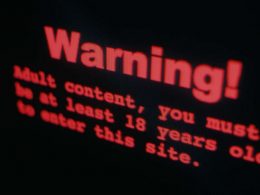The whole net neutrality issue has been looming for so long that you’ve probably started to tune it out, especially because it seems like there’s probably a Venn diagram overlap with Edward Snowden cosplayers. But it is a Big Deal and probably something you should be caring about and all that, even though it is all you can do to get through the day without a drink or a nap. Today, the United States Court of Appeals for the DC Circuit struck down the FCC’s Open Internet aka net neutrality provisions, which basically means that soon you could have the sheer unbridled joy of paying Verizon for the privilege of getting to your email. Let’s break this whole thing down nice and easy for you, shall we?
Back in 2010, the FCC adopted provisions that said “hey, we are not down with the idea that big telco providers should regulate access to the internet, because that sucks and stifles innovation.” Indeed, net neutrality is one of those things that seems like a no-brainer, particularly if you have ever owned a cellphone or had cable teevee. Do you really want to take the glorious unfettered free wild west that is your Internet and instead convert it to some hellscape of metered service where you have to hope and pray you don’t blow through your data cap while downloading those pictures of the grandkids? Do you really want to sort through your Internet bill like you currently struggle through your phone bill, trying to figure out why your cellphone suddenly costs $500 per month instead of $100? No, you do not!
Even since the Open Internet provisions were adopted, though, Verizon has been leading the charge to get those things GONE. The telco giant/bane of your existence brought a case seeking to void the rule and arguing that it shouldn’t be forbidden from discriminating between websites and apps. In other words, Verizon (and all the other enormous providers too, most likely) want to be able to block sites, promote sites, slow down your access to some sites, ban certain applications you may use to access content on the internet coughBitTorrentcough — you get the picture. And if you want wide open access to all those things, maybe you’d just like to pay a fee, hmmmmm?
Today, the DC Appeals Court agreed with Verizon, and it turns on the way that the FCC has previously categorized broadband providers versus telco providers:
Given that the Commission has chosen to classify broadband providers in a manner that exempts them from treatment as common carriers, the Communications Act expressly prohibits the Commission from nonetheless regulating them as such. Because the Commission has failed to establish that the anti-discrimination and anti-blocking rules do not impose per se common carrier obligations, we vacate those portions of the Open Internet Order.
Short version: your broadband internet provider isn’t the same, in this instance, as a common carrier, which usually refers to telco — aka phone — companies. Worse, it isn’t the same because the FCC itself has chosen to distinguish internet broadband providers from telcos. What this means is that the FCC can’t turn around and apply to the internet providers the anti-blocking rules it normally would apply to a telephone company — which are basically that your telephone company can’t say “naw, mang, we don’t call New York ever, and we only call Jersey for a fee, and no fucking way will we call someone on T-Mobile because those guys are dicks.” But hey, now your internet can do just that!
Super-wonky side note: the FCC classification scheme is A MESS and has resulted in weird decisions where, say, a cable company is a cable company when it delivers teevee to your house and is then on the hook for fees it pays to a city to run cable to do so, but it is an internet company when it uses those very same cables to deliver internet, and then is NOT on the hook for those same fees. How does this particular part of yr Wonkette know this? Because I once lost a case over it.
So now, moving forward, everyone is hoping that the FCC can un-fuck this situation with new rules.
The FCC — under the leadership of former Chairman Julius Genachowski — made a grave mistake when it failed to ground its open Internet rules on solid legal footing. Internet users will pay dearly for the previous chairman’s lack of political will. That’s why we need to fix the problems the agency could have avoided in the first place.
New FCC Chairman Tom Wheeler recently stated that the FCC must have the ability to protect broadband users and preserve the Internet’s fundamental open architecture. In order to do that, he must act quickly to restore and reassert the FCC’s clear authority over our nation’s communications infrastructure. The agency must follow its statutory mandate to make broadband communications networks open, accessible, reliable and affordable for everyone.
Here’s hoping. Thus endeth your telecommunications lawsplainer for the day.
Oh wait. Would you like to nerd out and read the whole decision? Yeah, you would. Go for it.
Note: This article does not necessarily represent the opinions of Paul Morris or Treasure Island Media. We felt it right to post, allowing each of you to digest, and form your own opinion. We look forward to hearing what you think.















It’s going to be appealed to the supreme court I bet. should they decide to take it or not remains to be seen.